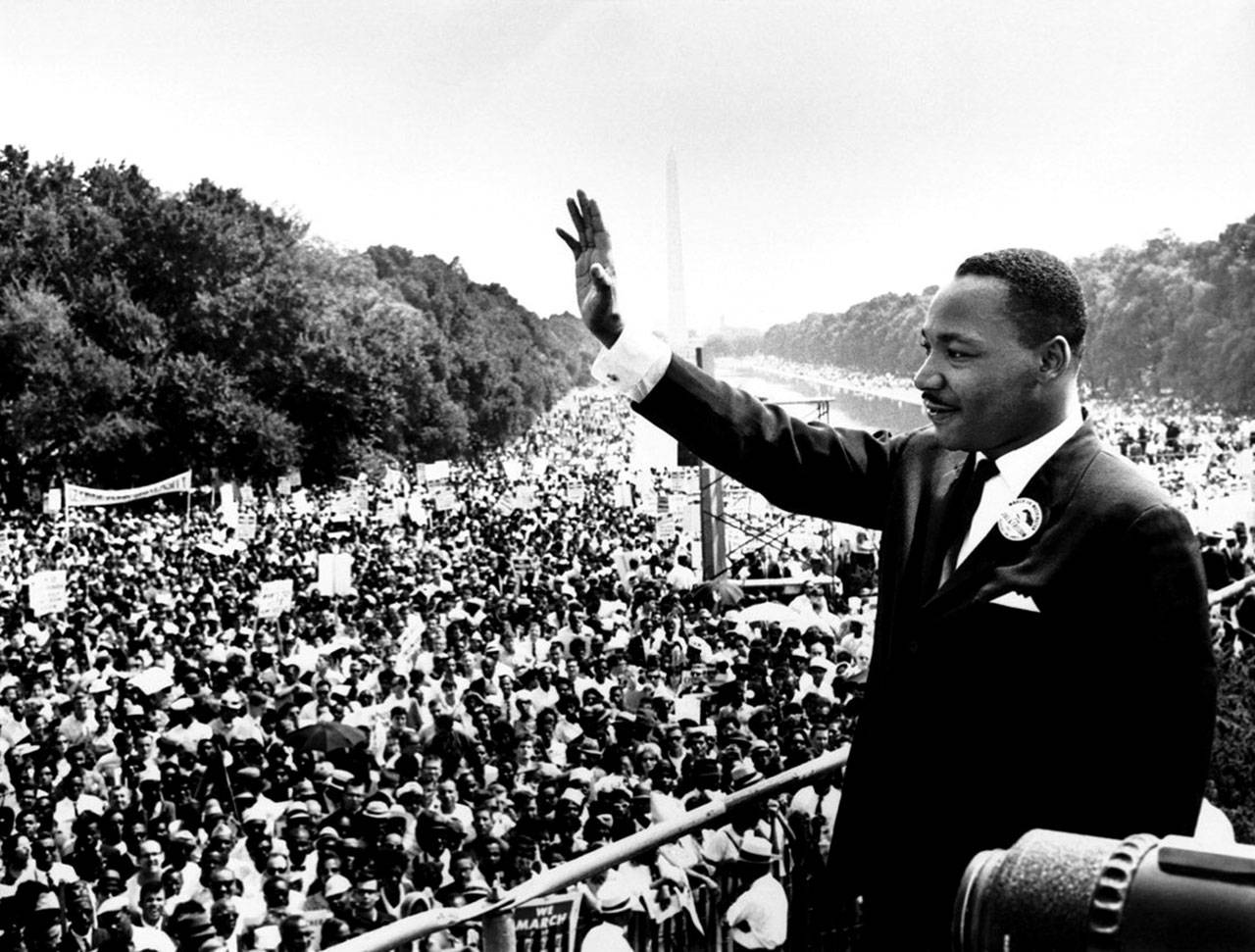Fifty years ago next Monday, Martin Luther King, Jr. blew out 39 candles on his birthday cake. He had no way of knowing it would be the last time he’d hear “Happy Birthday to You” sung to him. Less than three months later, the King of the non-violent civil rights movement would be dead.
The young civil rights leader had packed a lot of life into less than four decades of living. Though Dr. King stood only 5-feet 7-inches tall, he was a giant of a man. Like the One whose Gospel he proclaimed from the pulpit at Ebenezer Baptist Church in Atlanta, MLK practiced what he preached. And as was true with Jesus, his enemies robbed him of his life, but they could not silence his call for liberty and justice for all.
I was only 15 year old when Dr. King was gunned down on the balcony of the Lorraine Motel in Memphis. As such, I was too young to fully appreciate the impact of his life or his death.
Growing up in a mostly white community, far from the Mason-Dixon Line, I was insulated from the gravity of the civil rights movement. Not until I did my own research years later was I able to appreciate the larger-than-life influence of this diminutive prophet. In addition to looking beneath the headlines, I also discovered a rather unusual fact.
Did you know that the name on Dr. King’s birth certificate was Michael King, Jr.? It’s true! On Jan. 15, 1929, when the Reverend Michael King’s wife gave birth to a boy, he informed his congregation that his son would carry his name. The baby would be called Michael King, Jr. But, in the summer of 1934 something happened that would change both their names and the course of history.
The elder King traveled with some of his pastor colleagues to the Holy Land. After “walking where Jesus walked” in Palestine, the group stopped in Germany to attend the Baptist World Alliance. King took advantage of the opportunity to explore the region where the Protestant Reformation had been birthed in 1517. He was particularly impressed by the courageous faith of a young Catholic monk who had stood up to the injustices of his day. The more the elder King learned of Martin Luther, the more he liked.
Upon returning to Atlanta, the Baptist pastor felt compelled to initiate lasting change in his life and in his world. To that end, he petitioned the courts for a change of name for both himself and his son. Michael King, Sr. and Jr. would be henceforth known as Martin Luther King.
King’s 5 year old son entered first grade with a historic name into which he would grow. It would prove to be a name reminding the “preacher’s kid” of a destiny bigger than he could imagine. When tempted to give up, Martin would only need to recall where his new name came from and what it stood for.
And for Martin Luther King, Sr. it meant much the same. A change of name signified a commitment to challenge injustice that continues to fly in the face of the Christian faith. It was a commitment his namesake maintained to his death.
And isn’t it interesting that the 50th anniversary of MLK’s death coincides with the 500th anniversary of Martin Luther’s courageous protest of unjust Church? It is interesting, indeed!
Rev. Greg Asimakoupoulos is the full-time chaplain at Covenant Shores Retirement Community on Mercer Island. He is the faith and values columnist for the Mercer Island Reporter and contributes original poetry each Blue Friday to KOMO news radio.



